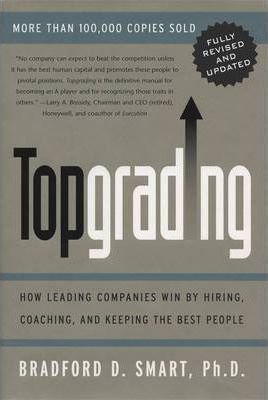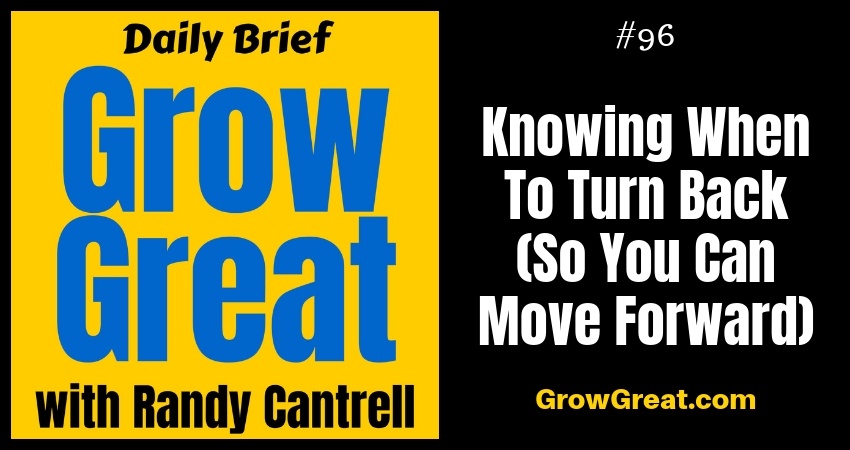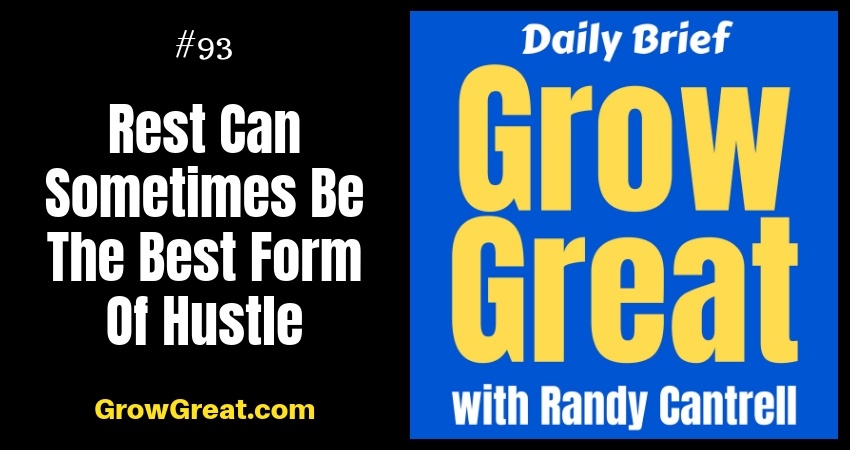The Power of Simplicity – Grow Great Daily Brief #98 – November 6, 2018
Podcast: Play in new window | Download (Duration: 8:19 — 8.1MB)
Subscribe: Apple Podcasts | Spotify | RSS | More

I’m fixing to make some college football fans angry. Because I’m going to take a stand as a fan myself. I was born in Ada, Oklahoma. I grew up in Oklahoma, Louisiana and Texas. My grandparents were always in Oklahoma. That makes me a Sooner football fan. I’ve been an OU fan since I was a little boy. Through thick or thin. A BIG TIME FAN! Honestly, I love college football even though I live in DFW, which is an enormous professional sports town.
The point?
Some weeks ago the OU head football coach fired the defensive coordinator in mid-season. He put another coach in charge of the defense. The team’s defense was dreadful even though they had four-star players. The first thing the new defensive coach did was SIMPLIFY how the team played. He understood that these players were fast, but they didn’t play fast because they were being overcoached by the ex-coach. Things were so complicated the players weren’t playing fast. The new coach felt that if he could get the players to line up properly (position matters) and give them the confidence to know they could do what he asked…then they’d play fast. By simplifying everything the team did defensively, within a few games under this new system it’s obvious to fans and media that his strategy is working, but it’s still very early in his process. Sooner fans are hopeful. 😉
Speed kills.
And I mean it kills in the most positive way. It destroys the competition. It kills in the market!
Complexity slows everything down. It causes people to pause or hesitate. If only for a second or two. Ask those OU defensive players how much easier their lives got when they gained confidence in what they were doing, knowing coaches were putting them into the best positions on the field. Simplicity and confidence go hand in hand. And not just for college football players.
What does that mean for you and your business?
Hard work. That’s what it means. It’s tough to make things simple.
One of my favorite quotes is up for dispute as to who said it. No matter, it’s brilliant. And true.
I have made this longer than usual because I have not had time to make it shorter.
I’ve done enough writing, podcasting, and public speaking for years to know the truth. It’s really hard to make things concise and brief. Longer, like complexity, is often easier. Simplicity and speed are very, very hard. Which helps make them monster competitive advantages that you must seize! Today. Right now.
Simplicity works no matter where you deploy it. Get started. Hint: it may be ideal to tackle the areas where you know complexity is hurting you. You don’t know? Ask the people doing the work where the complexity is. They’ll tell you.
That new defensive coach for OU started asking the players what plays made them uncomfortable. He was searching for areas where they weren’t confident. They told him. And where they all agreed, he and his staff began to go to work.
You need to do the same thing. Find the areas inside your business where the complexity is breaking things. If you really want to know, you can find out fast.
Then what?
Then you go to work to figure out how to fix it. This won’t likely be overly burdensome, but it requires your focus and attention. That’s what’s tough about this activity. We don’t want to tackle this stuff. We’ve got other fires to extinguish. Stuff to sell. Payroll to make. Contracts to negotiate. Marketing campaigns to approve.
Processes often grow cumbersome over time. Owners implement one process to address a problem. The new process winds up creating a few new problems. But they’re less bothersome than the problem that got fixed. So you live with it. Then another process gets created because one of those problems starts growing. Systems get crafted and piled on top of other systems slowing down everything in its path. We end up choking on things we installed intended to serve our company.
Burn it to the ground in your head. Make up your mind that you’re going to put simplicity near the top of your objectives. When it becomes a priority, then you’ll start unwinding all the complexity that’s crippling you. It won’t happen until then. So I’m encouraging you to get sick and tired of it right now. Decide today that enough is enough!
Don’t make it a fad initiative. This won’t work if you dive in to simplify things this week, then next week you start winding things back up into new and different complexity. Commit to simplicity and speed. Embrace it as a permanent way of life. This doesn’t mean everything in your business is simple. Some things are complex, but they should only be as complex as they need to be.
Go simple and go fast. Be complex and go slow. You know which way to go if you want to win. Get busy!
Be well. Do good. Grow great!

Listen to the podcast
The Power of Simplicity – Grow Great Daily Brief #98 – November 6, 2018 Read More »



 Across all sectors, it seems people are challenged to upgrade, or topgrade their workforce. “Topgrading: How Leading Companies Win by Hiring, Coaching and Keeping the Best People” by Bradford D. Smart was a book published in 1999. It spoke of the need to have superior people if you’re going to build a superior company. Mr. Smart’s advice – and his company – focus on being able to assess people so you can acquire top level talent.
Across all sectors, it seems people are challenged to upgrade, or topgrade their workforce. “Topgrading: How Leading Companies Win by Hiring, Coaching and Keeping the Best People” by Bradford D. Smart was a book published in 1999. It spoke of the need to have superior people if you’re going to build a superior company. Mr. Smart’s advice – and his company – focus on being able to assess people so you can acquire top level talent.



